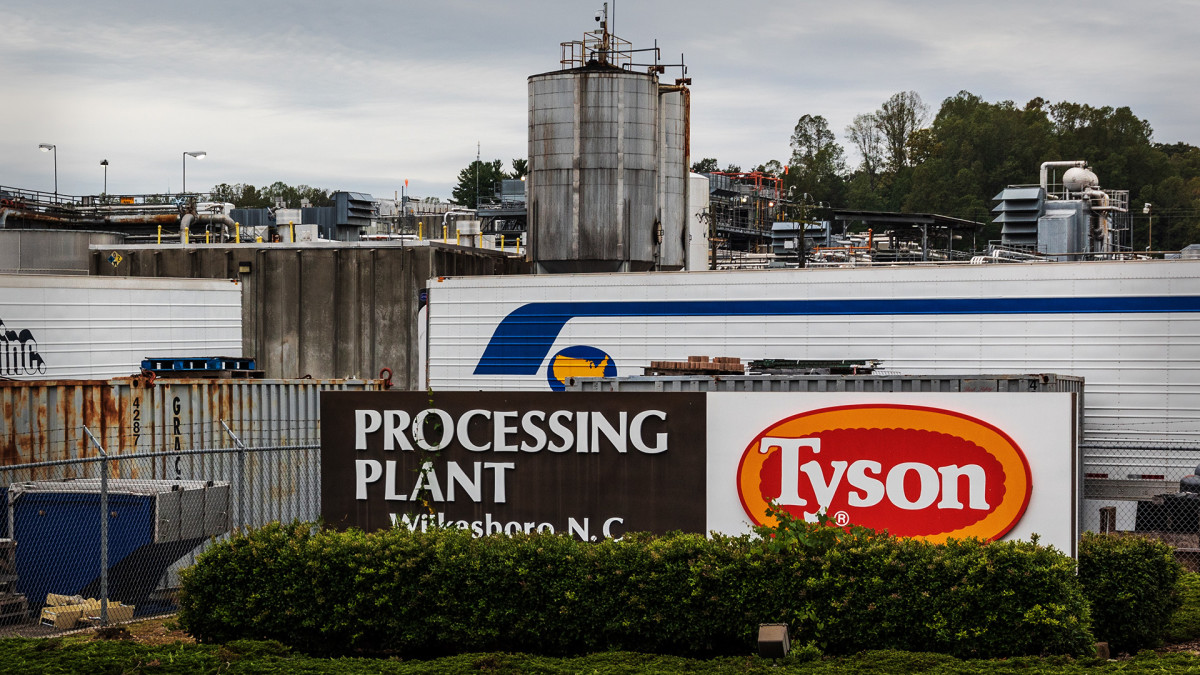Hillshire Brands, a Tyson Foods subsidiary, issued a massive nationwide recall that goes far beyond a few bad batches of frozen snacks.
The company is recalling 58 million pounds of popular snack products because they are contaminated with wood fragments.
The contamination is severe enough that the USDA Food Safety and Inspection Service (FSIS) classified the case as a Class I recall, the most urgent category.
At least five consumer injuries have been reported so far. While no deaths have been linked to the contamination, federal officials warn that swallowing wood fragments can cause choking or internal injury.
The recall is one of the largest so far in 2025 and a reminder that food safety failures carry enormous costs, not just for companies but also for the consumers who trust them.

Image source: Shutterstock
What consumers need to know about the Tyson recall
The products Tyson (TSN) is recalling are frozen corn dogs and sausage-on-a-stick.
Key recall details:
- Product name: Jimmy Dean and State Fair corn dog and sausage-on-a-stick products.
- Establishment numbers: “EST-582” or “P-894” printed on the package.
- Production dates: March 17 to September 26, 2025.
- Use-by dates: As late as April 27, 2026; May 6, 2026; and June 8, 2026.
Consumers should not eat the products, even if they look normal. Instead, discard them or return them for a refund. The official recall notice is posted on the USDA FSIS website.
According to the FSIS recall notice, the corn dogs and sausages have been sold through national retailers, schools, online grocery services, and even Department of Defense facilities.
The high price of a food product recall
Hillshire and Tyson have not disclosed the cost of the recall. Still, food industry data show that the financial damage can be enormous.
A 2020 report in Food Manufacturing estimated the average direct cost of a food recall — including logistics, transportation, and disposal — is around $10 million.
Related: Costco issues urgent recall on major Kirkland product
But that’s only the beginning. A 2025 ScienceDirect analysis found that the total cost can triple or quadruple once companies factor in lost sales, brand damage, and legal exposure. In other words, a $10 million recall can quickly become a $40 million problem.
Additional studies show:
- A 2024 New Food Magazine report found that labeling and contamination recalls cost U.S. food companies $1.92 billion in direct expenses last year.
- Even small recalls can incur hundreds of thousands of dollars in hotline, legal, and PR expenses, according to Quality Assurance Magazine.
When recalls ripple through supply chains, distributors and retailers may collectively lose tens of millions of dollars in lost product, restocking, and disposal costs.
The hidden cost may be the hardest to measure.
Just 55% of Americans express confidence in the safety of the U.S. food supply. That marks a historic low, according to the International Food Information Council (IFIC).
“Trust in our food supply cannot be taken for granted — it must be continually earned,” IFIC President and CEO Wendy Reinhardt Kapsak said in the report.
“With growing consumer demand for transparency and accountability in how food is produced and regulated, we have a real opportunity to improve how we communicate about safety, from ingredients to recalls,” she said.
Recalls from every grocery aisle
The Hillshire case is just one in a growing string of high-impact food recalls that have hit U.S. consumers this year.
In August, Costco (COST) recalled its Kirkland Signature Prosecco Valdobbiadene, warning that unopened bottles could shatter unexpectedly due to internal pressure.
The recall affected 12 Midwestern states and prompted full refunds for customers who purchased bottles between April and August.
Related: Kroger recalls ‘radioactive’ food sold in stores in 31 states
More recently, Kroger (KR) and its supplier Aquastar (USA) Corp. recalled shrimp products after testing revealed contamination with cesium-137, a radioactive isotope, according to the FDA announcement. Cesium-137 increases the risk of cancer.
These examples show how modern food safety hazards extend well beyond bacteria or allergens.
Whether it’s foreign material, radioactive contamination, or even glass shattering inside bottles, today’s recalls illustrate the sheer complexity — and fragility — of global supply chains.
Related: Trader Joe’s issues urgent recall for contaminated food
#Tyson #recalls #millions #Hillshire #Brands #snacks